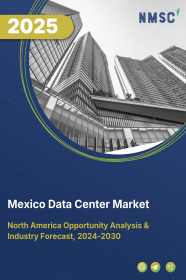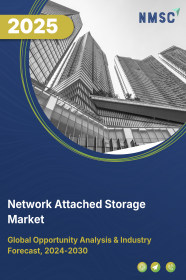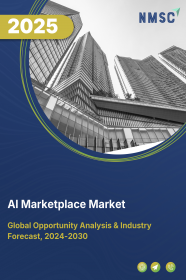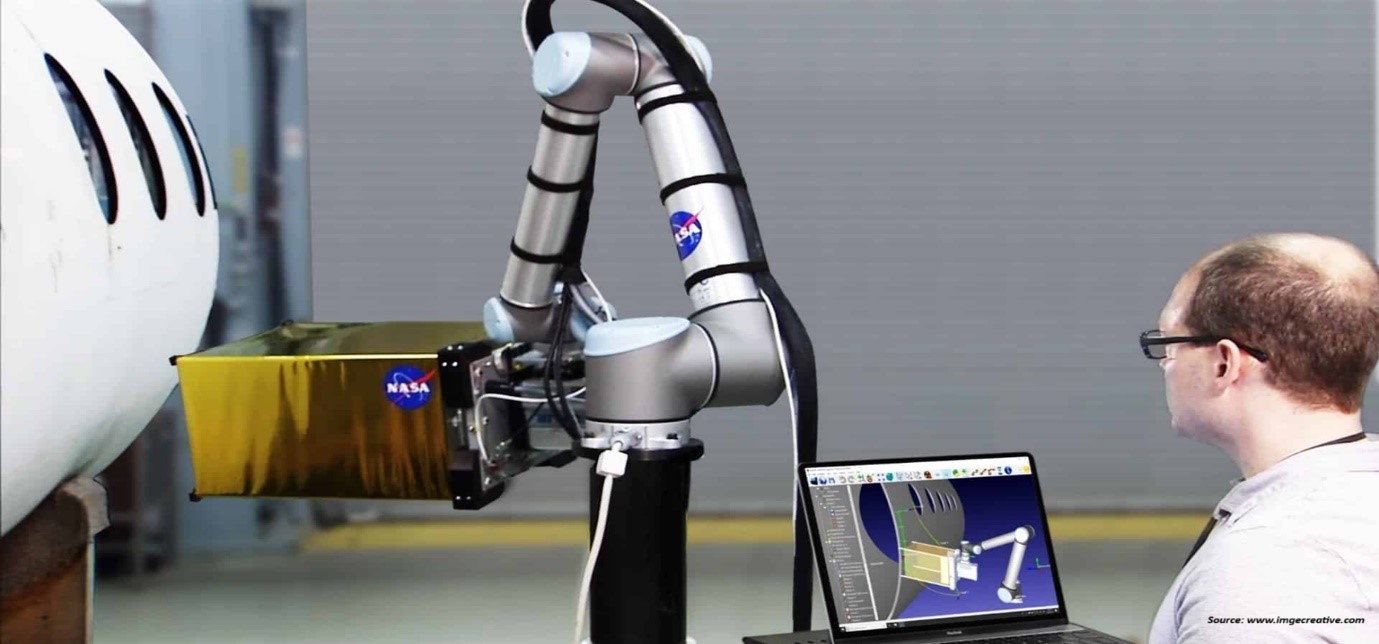
Mexico Data Center Market by Component (Hardware, Software, Service), by Type (Colocation, Hyperscale, Edge, Other Types), by Deployment Model (On-Premises, Cloud, Hybrid), by Tier Standard (Tier 1, Tier 2, Tier 3, Tier 4), by Energy Requirement & Power Density (Low Power, Medium Power, High Power), by Cooling Techniques (Air Cooling, Liquid Cooling, Others), by Enterprise Size (Large Enterprises, Others), by End User (BFSI, Other End Users)- Opportunity Analysis and Industry Forecast, 2024–2030
Industry: ICT & Media | Publish Date: 09-Apr-2025 | No of Pages: 173 | No. of Tables: 134 | No. of Figures: 79 | Format: PDF | Report Code : IC2423
US Tariff Impact on Mexico Data Center Market
Trump Tariffs Are Reshaping Global Business
Mexico Data Center Market Overview
The Mexico Data Center Market size was valued at USD 5.18 billion in 2023, and is predicted to reach USD 8.92 billion by 2030, at a CAGR of 8.1% from 2024 to 2030. The data center market, also referred to as the network infrastructure market, encompasses the planning, construction, operation, and upkeep of specialized infrastructure dedicated to hosting computing systems. It comprises various components such as servers, storage systems, and networking gear, providing services like cloud computing and connectivity solutions. Presently, the industry is witnessing widespread adoption of cloud services, alongside the emergence of edge computing to minimize latency.
Key trends include an emphasis on sustainability, heightened cybersecurity concerns, the integration of hybrid and multi-cloud approaches, and the influence of 5G networks. These trends underscore the industry's response to the growing demand for scalable, efficient, and secure data processing and storage solutions in the era of digital transformation. According to the United States International Trade Commission, the data processing and storage market is projected to expand from USD 56 billion in 2020 to USD 90 billion by 2025.
Facilitating Digitalization and AI Adoption Boosts the Market Growth
The expansion of network infrastructure in Mexico is driven by the goal of facilitating digitalization and adopting artificial intelligence (AI) to support startups across the country. A recent example is Vultr's announcement to launch a data center in Mexico City, aimed at boosting graphic computing capacity for AI and fostering digital startup growth. This initiative is designed to provide the necessary computational power for advanced AI applications, enabling startups to innovate and scale more efficiently.
Similarly, Oracle's partnership with Telmex-Triara aims to aid the digitization of numerous local companies. By providing enhanced data processing capabilities and cloud services, this collaboration helps businesses transition to digital platforms, thus improving operational efficiency and competitiveness.
However, these advancements are not without challenges, as Mexico still faces issues in power distribution and data processing infrastructure. Addressing these challenges is crucial for the sustained growth and effectiveness of these digitalization efforts.
Rising Investments by Regulatory Bodies Propels the Mexico Data Center Market Growth
Digitalization and AI initiatives, rising investment in the market indicates a positive outlook for the Mexico data center market expansion. The establishment of the Mexican Association of Data Centers (MEXDC), with an initial investment of approximately USD 8.5 billion in the Bajío region, exemplifies this trend. This significant investment underscores the confidence investors in Mexico's potential as a network infrastructure hub.
Mexico's strategic location, with proximity to both North and South American markets, and its growing demand for data storage make it an attractive destination for the market investments. The country’s expanding digital economy, coupled with favorable government policies, further enhances its appeal.
This influx of capital supports the expansion of infrastructure, including the development of new centers for the market growth and the upgrade of existing ones. As a result, Mexico is positioned to become a key player in the global market trends, driving technological innovation and economic growth in the region.
High Initial Investment Impedes the Mexico Data Center Market Growth
The data center market encounters significant challenges, particularly the high initial investment and stringent environmental regulations. Establishing and maintaining network infrastructure requires considerable upfront financial commitments, creating barriers for smaller enterprises and startups. Additionally, ongoing compliance with environmental standards demands continuous investment in energy-efficient technologies hinders the overall Mexico data center market growth.
Integration of Edge Computing Presents Lucrative Opportunity for Market Expansion
The integration of edge computing operations offers significant prospects for the industry's growth. By reducing latency and enabling real-time processing, edge computing supports applications such as the Internet of Things (IoT) and Augmented Reality (AR), reducing the load on centralized cloud data centers while providing scalability and flexibility.
This decentralized approach not only improves security by processing sensitive data locally but also aligns with evolving digital landscapes, creating diverse opportunities for network infrastructure providers. Recent investments in startups like Armada reflect the growing interest in edge computing solutions, indicating a concerted effort to address connectivity challenges and bridge the digital divide.
Competitive Landscape
The key market players operating in the Mexico data center industry include Equinix Mexico, Cirion Technologies, MOD Mission Critical, Digital Realty, IPXON Networks, HostDime, Zenlayer, Oracle, KIO Networks, Scala Data Centers, ODATA, Edgeuno, EdgeConneX Inc., Microsoft Corporation, Google Inc, and others.
Mexico Data Center Market Key Segments
By Component
-
Hardware
-
UPS
-
Generators
-
Transfer Switches
-
Cooling Systems
-
Computer Room Air Conditioning (CRAC)
-
Racks
-
Others
-
-
Software
-
Services
By Type
-
Colocation
-
Hyperscale
-
Edge
-
Other Types
By Deployment Model
-
On-Premises
-
Cloud
-
Hybrid
By Tier Standard
-
Tier 1
-
Tier 2
-
Tier 3
-
Tier 4
By Energy Requirement and Power Density
-
Low Power (Less than 20MW)
-
Medium Power (20-100MW)
-
High Power (100MW and More)
By Cooling Techniques
-
Air Cooling
-
Liquid Cooling
-
Dry Cooling
-
Immersion Cooling
-
Others
By Enterprise Size
-
Large Enterprises
-
Small and Medium Enterprises
By End User
-
BFSI
-
IT and Telecom
-
Government
-
Energy and Utilities
-
Other End Users
Key Players
-
Equinix Mexico
-
Cirion Technologies
-
MOD Mission Critical
-
Digital Realty
-
IPXON Networks
-
HostDime
-
Zenlayer
-
Oracle
-
KIO Networks
-
Scala Data Centers
-
ODATA
-
Edgeuno
-
EdgeConneX Inc.
-
Microsoft Corporation
-
Google Inc
REPORT SCOPE AND SEGMENTATION:
|
Parameters |
Details |
|
Market Size in 2023 |
USD 5.18 Billion |
|
Revenue Forecast in 2030 |
USD 8.92 Billion |
|
Growth Rate |
CAGR of 8.1% from 2024 to 2030 |
|
Analysis Period |
2023–2030 |
|
Base Year Considered |
2023 |
|
Forecast Period |
2024–2030 |
|
Market Size Estimation |
Billion (USD) |
|
Growth Factors |
|
|
Companies Profiled |
15 |
|
Market Share |
Available for 10 companies |
|
Customization Scope |
Free customization (equivalent up to 80 working hours of analysts) after purchase. Addition or alteration to country, regional, and segment scope. |

















 Speak to Our Analyst
Speak to Our Analyst





















